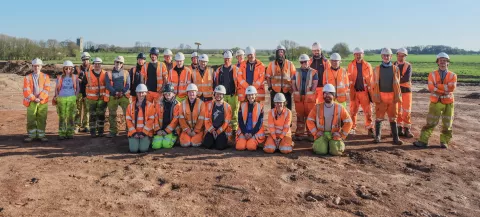Our people
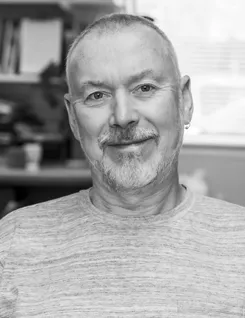
John graduated from Lancaster University in 1981 with a BA (Hons) in Archaeology. He is also a Member of the Chartered Institute for Archaeologists (MCIfA). An early interest in medieval archaeology, artefacts, and pottery in particular has been followed by nearly 35 years employment as a medieval and post-medieval pottery specialist, and sometimes illustrator. His specialist area is the pottery of south-east England although he also writes reports on clay tobacco pipes and ceramic building material. He is an active member of the Medieval Pottery Research Group. Other interests include Egyptology.
John was lucky enough to work in Italy in the early 1980s for the British School at Rome. On returning to England he continued working as a pottery specialist, first for Colchester Archaeological Trust and then, for 15 years, at Canterbury Archaeological Trust before joining Oxford Archaeology in 2005 in the same capacity. This earlier employment resulted in the authorship of a number of research publications including a corpus of medieval and later pottery from Colchester excavations, and monographs on pottery from Canterbury and Dover, as well as numerous smaller published reports on a range of ceramic topics. John continues in this role for OA, assessing and reporting on pottery and other ceramic material from Oxford Archaeology's excavations across southern England and sometimes further afield.
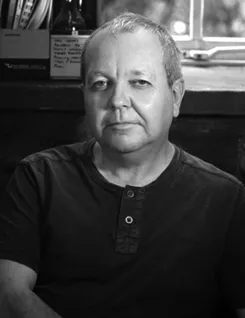
John Zant, BA (Hons), MCIfA
A graduate of the University of Newcastle-upon-Tyne and a Member of the Chartered Institute for Archaeologists, John has worked as a professional archaeologist for nearly 40 years, and has over 20 years’ service at our Lancaster office, currently as a Senior Project Manager in the post-excavation department. A highly experienced fieldwork director and researcher, John spent much of his early career working in historic urban environments, where he gained considerable expertise in the excavation of highly complex archaeology, including internationally significant waterlogged deposits.
John is vastly experienced in the excavation, recording and interpretation of multi-period archaeological remains, though his principal research interests lie in the archaeology of the Roman army and the development of urbanism in Britain. He has established a reputation as a leading expert on the Roman period in northern England, and has developed a strong track record of post-excavation analysis and publication, having authored a wide range of archaeological reports, including local and national journal articles and a number of substantial monographs.

Joshua White BA MSc ACIfA
Post-Excavation Project Officer
Josh joined Oxford Archaeology in 2022 after a decade of working in commercial archaeology across Norfolk and Suffolk, where he led excavations on a variety of projects and collated a diverse publication portfolio which spans the archaeology of the Neolithic to medieval periods.
His research interests primarily focus on Iron Age and Romano-British animal husbandry practices, but he also has a keen interest in the archaeology of medieval rural settlements.
As part of the post-excavation team at Oxford Archaeology’s Cambridge office, Josh is responsible for producing and editing client reports and he also carries out analysis of animal bone and mollusc assemblages recovered during excavations.
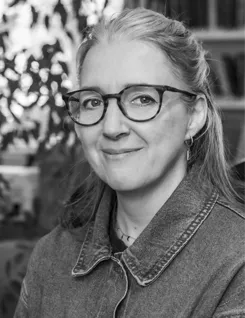
Kate graduated from University College London, institute of Archaeology, in 2000 with a BA (Hons) in Archaeology, and immediately began work on large projects in central London as a field Archaeologist. Kate started at Oxford Archaeology in the field in 2002 and joined the post-excavation department in 2005, first working on the Channel Tunnel Rail link project (HS1).
As a Project Officer, Kate has written and published many reports and articles and co-authored several monographs. She has also continued to work in the field on projects including the recovery and identification of World War I soldiers at Fromelles, Northern France, and the excavation of the medieval Greyfriars Friary during the development of the Westgate Centre in Oxford.
Kate is also a Roman pottery specialist and Oxford Archaeology’s fieldwork photographer.
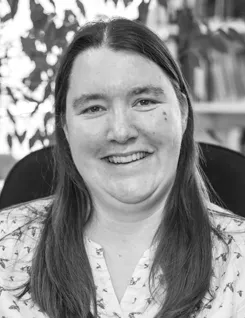
Kirsty graduated from the University of Reading 2004 with a BA (Hons) in Archaeology and then undertook an MA in Museums and Galleries at the University of Southampton in 2006-7. After working front of house for English Heritage for several years, she spent a year working for Canterbury Archaeological Trust as a field archaeologist. From 2008-2013 she worked for English Heritage at Dover Castle as an Assistant Curator.
Kirsty is now one of Oxford Archaeology’s experienced researchers and undertakes evaluation and excavation reports, conservation management plans, desk-based assessments and contributes to monographs. Kirsty has a particular interested in historical archaeology and combining documentary evidence with stratigraphic analysis and buildings research.
Since October 2020, Kirsty has been developing a specialism in Ceramic Building Material and fired clay.
Kirsty is an Associate Member of the Chartered Institute for Archaeologists (ACIfA).
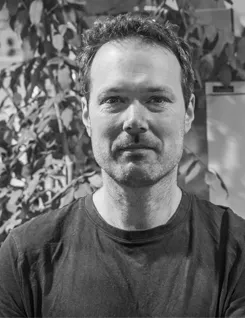
Lawrence graduated from the University of Bristol in 2004 and has since worked for various commercial archaeological companies as well as studying for an MA in European Prehistory (University of Sheffield) and a PhD on the Upper Palaeolithic and Mesolithic of East Anglia (University of Manchester/Historic England).
Lawrence is a specialist in the study of lithic assemblages and his main area of interest is the Mesolithic to Early Bronze Age of Eastern England. Aside from reporting on lithics, he contributes to the work of the post-excavation team at Oxford Archaeology's Cambridge office in the production of reports and publications.
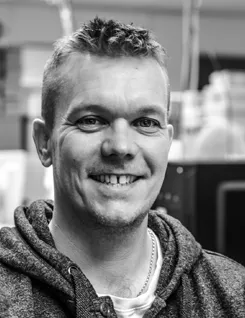
Martyn has been a Senior Project Manager at OA since 2018. He manages the post-excavation of archaeological projects, bringing to conclusion the results of our fieldwork for clients, often to publication. Martyn specialises in the study of late Iron Age and Roman Britain, especially in the fields of rural settlement and agriculture, and he is an experienced zooarchaeologist (animal bone specialist). Martyn currently sits on the Britannia Editorial Committee for The Roman Society.
After gaining a BA (Hons) in Archaeology from the University of Winchester in 2004, Martyn went on to complete an MA in Osteoarchaeology at the University of Southampton in 2006, and then a PhD at the University of Nottingham in 2010. Before joining Oxford Archaeology in 2017, Martyn worked for Historic England as a Research Assistant in Zooarchaeology and, between 2012 and 2016, was employed as a Post-Doctoral Research Fellow at the University of Reading.
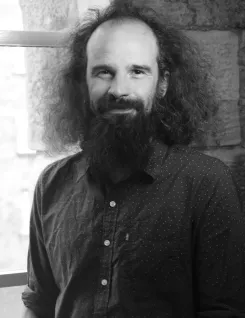
Nick has a BA (hons) in Archaeology from the University of Leicester, a MA in Osteoarchaeology from the University of Southampton and a PhD in Archaeology from the University of Manchester. After his PhD, Nick was a Lecturer in Archaeology at the University of Chester and Manchester.
Nick’s research has focused on the Prehistory of Britian and North West Europe; he has published a number of research articles examining the British Mesolithic, and in particular using detailed zooarchaeological analysis to think about the relationships between hunter-gatherer groups and the animals they lived alongside. Nick has also researched and published on the Neolithic and Early Bronze Age of Britian and Ireland, which included large-scale Bayesian statistical analysis of radiocarbon data. During his time at the University of Manchester, Nick has directed fieldwork projects at No Name Hill in Yorkshire, an Early Mesolithic wetland site with incredible assemblages of animal bone, worked wood, stone tools and antler projectile points, and at Dorstone Hill, an Early Neolithic monumental complex in Herefordshire.
As a Post-Excavation Project Officer, Nick uses his expertise in site interpretation, materials analysis and interpretations, radiocarbon modelling and publication to contribute to the analysis of projects, and the dissemination and communication of archaeology knowledge produced through developer funded excavations undertaken by Oxford Archaeology.

